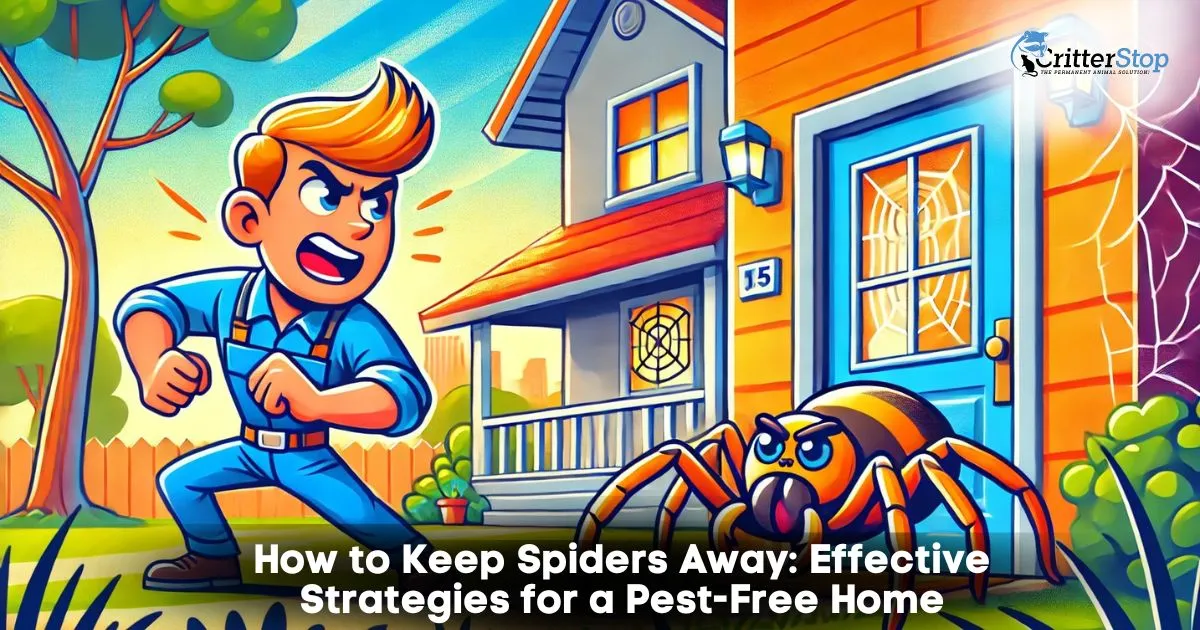
Many people find spiders unsettling and want to keep them away from their homes. Keeping spiders away can be effectively achieved through cleanliness, natural repellents, and strategic home maintenance. These methods not only discourage spiders from entering but can also create a more comfortable living environment.
Regular cleaning is essential, as clutter and dust can attract various pests, including spiders. This includes vacuuming corners, clearing webs, and minimizing food sources. Natural repellents like peppermint oil and vinegar can serve as effective deterrents without harsh chemicals.
Finally, sealing cracks and gaps in doors and windows prevents spiders from entering. Installing screens and using proper lighting also reduces spider activity indoors. By following these straightforward strategies, anyone can maintain a spider-free space.
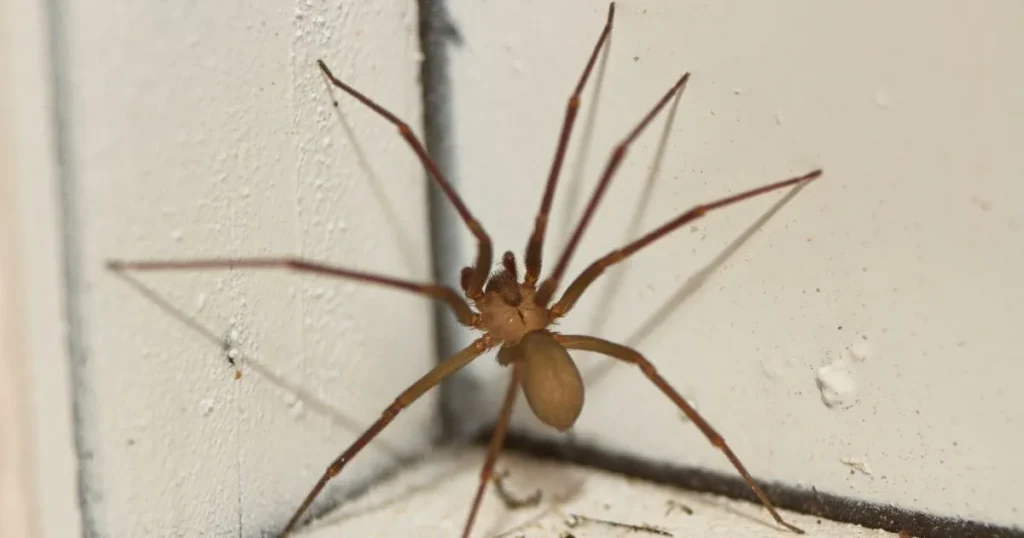
Spider behavior is influenced by their habitats and the factors attracting them to indoor spaces. Knowing these details can help implement effective strategies to keep spiders out of your house.
Spiders thrive in various environments, often choosing areas that offer shelter and food. They are commonly found in:
Understanding these habitats aids in targeting specific areas for prevention. Regular cleaning and decluttering can significantly impact spider populations indoors.
Several factors draw spiders into homes. Key attractants include:
Keeping a clean home and addressing pest issues are critical steps in preventing spiders from entering. Strategically placing barriers can also effectively keep spiders away from the house.
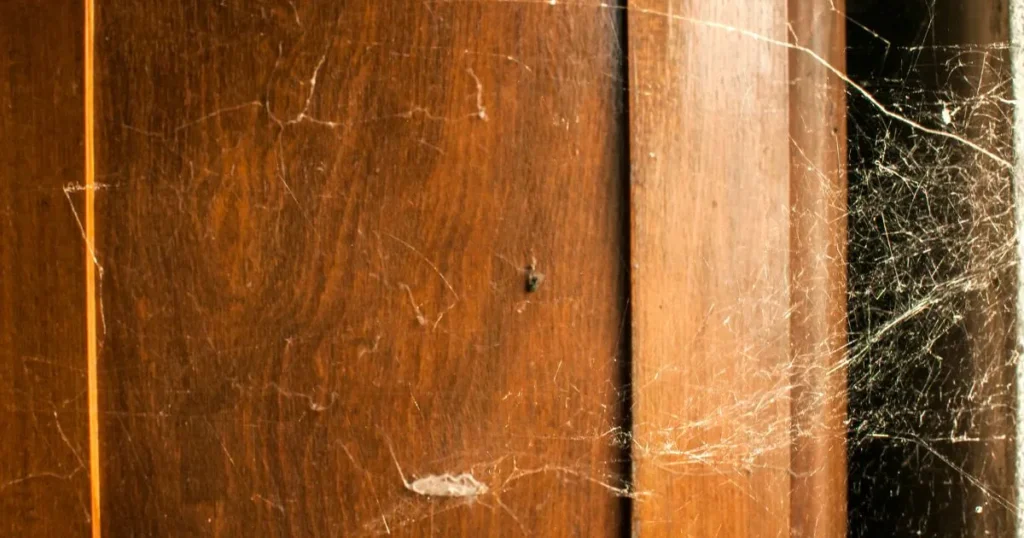
Effective preventive measures can significantly reduce the likelihood of spiders entering a home. By securing the perimeter, employing natural deterrents, and maintaining cleanliness, individuals can create an environment less hospitable to these pests.
To keep spiders out, start with the exterior of the home. Sealing gaps in windows and doors is crucial. Use caulk to fill cracks and ensure weather stripping is intact.
Also, consider installing door sweeps. These can prevent spiders from entering through the bottom of doors.
Remove debris, clutter, and plants close to the foundation to maintain a buffer zone around the house. This minimizes hiding spaces.
Reducing outdoor lighting can also help, as bright lights attract insects, which attract spiders.
Regular gutter and downspout maintenance will prevent standing water, a breeding ground for various pests.
Several natural substances can effectively deter spiders. Essential oils such as peppermint, tea tree, and citrus work well as repellents. Mixing a few drops with water in a spray bottle is a powerful deterrent when spraying corners and entry points.
Vinegar is another option. A 50/50 mixture with water can be sprayed in areas frequented by spiders.
Herbs like lavender, eucalyptus, and rosemary are also known to repel spiders. Placing potted versions of these plants near entryways can be beneficial.
In addition to these natural options, commercial spider repellents are available. They're often made from natural ingredients and can provide extended protection against these pests.
Keeping a clean home is vital for preventing house spiders. Regular vacuuming can eliminate spider webs and eggs. Focus on corners, baseboards, and under furniture.
Reducing clutter can make a significant difference. Boxes, stacks of newspapers, and other items provide ideal homes for spiders.
Proper food storage also plays a part. Sealing food in airtight containers prevents attracting pests that might draw spiders.
Moreover, addressing moisture issues is essential. Spiders are drawn to damp areas, so using dehumidifiers in basements can help.
By maintaining cleanliness and addressing potential pest attractants, individuals can effectively deter spiders and reduce their presence in the home.
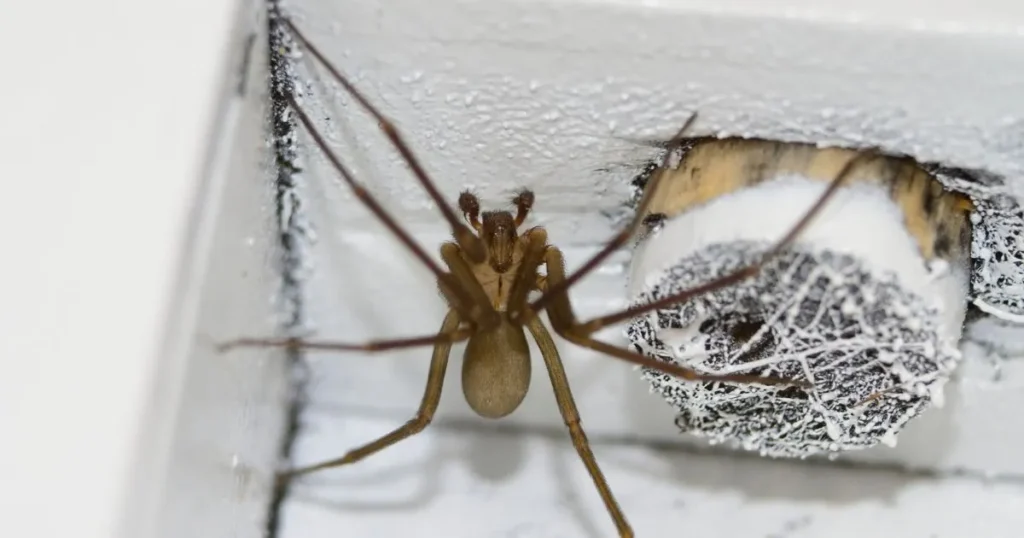
Keeping spiders away requires a combination of strategic practices inside and outside the home. Effective prevention ensures the elimination of spiders and reduces the presence of bugs that attract them.
To prevent spiders from entering the house, it is essential to keep living spaces clean and clutter-free. Regular vacuuming removes dust, spider webs, and potential egg sacs. Pay special attention to corners, under furniture, and behind appliances.
Sealing cracks and gaps in walls, windows, and doors help keep spiders and bugs out of the house. Weather stripping and caulking materials effectively block entry points.
Additionally, essential oils like peppermint or tea tree can be natural repellents. Mixing a few drops with water in a spray bottle creates an effective deterrent. Spraying this mixture around windows and doorways may help keep spiders away from home.
Addressing the exterior of the house is crucial for effective spider control. Keeping the yard tidy minimizes hiding spots. Regularly trimming bushes and mowing the lawn prevents overgrowth where spiders can thrive.
Using outdoor lighting wisely can also deter spiders. Choosing yellow bulbs instead of white lights reduces bug attraction, which helps keep spiders away from the house.
Cedar mulch is a beneficial addition to gardens. Its scent repels many insects, diminishing spiders' food supply. Establishing a barrier of stones or gravel around the home's edges may also help keep spiders and bugs out.
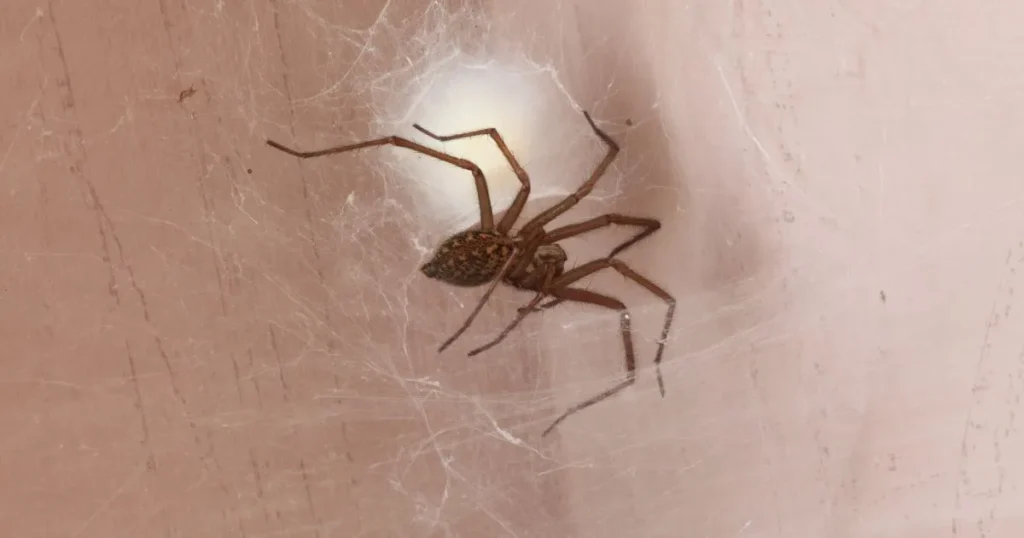
Specific strategies are necessary to effectively control different spider species. Recognizing the unique habits and traits of problematic spiders can help implement targeted preventive measures.
Brown recluse spiders prefer dark, undisturbed areas. To keep them away, it’s essential to declutter basements, attics, and garages. Sealing cracks and crevices also reduces their hiding spots.
For black widow spiders, prevention focuses on outdoor maintenance. Regularly check sheds, woodpiles, and under outdoor furniture. Applying insecticide around these areas can deter them. Homeowners should also be cautious when reaching into dark places.
Identifying signs of spider webs or egg sacs can be crucial. Regular inspections can help catch infestations early. If identified, it's wise to remove nests safely and promptly.
Safety comes first when handling spider infestations. Homeowners should wear gloves and use tools to remove webs or traps. Keeping children and pets away from suspected areas can minimize risks.
When problems escalate, seeking professional help is advisable. Pest control specialists can identify specific spider species and offer targeted solutions. They have access to specialized treatments that may not be available to the public.
In brown recluse or black widow bites, immediate medical attention is necessary. Knowing how to recognize symptoms ensures swift action. Always keep emergency numbers handy and inform household members about potential spider dangers.
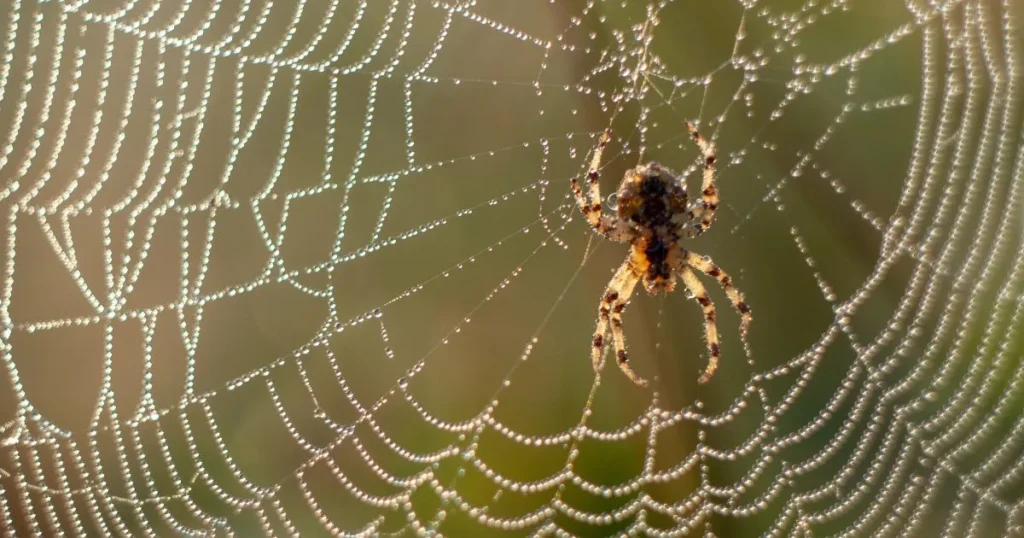
Implementing strategic measures can significantly reduce spider presence. These methods involve adjusting environments and utilizing alternative repellent tactics to create a less inviting space for spiders.
Light plays a crucial role in attracting spiders. To reduce spider activity in outdoor areas, consider using yellow or sodium vapor lights. These lights are less attractive to insects, diminishing spider food sources.
When using LED lights, position them away from windows and doors. This can deter spiders from entering homes or apartments. Also, be cautious with outdoor lights near sandboxes or storage units, as spiders often seek shelter nearby. Regularly inspect areas around security cameras and lighting to ensure spiders don't settle there.
Various natural deterrents can keep spiders at bay. Essential oils like peppermint, lavender, and tea tree oil can be effective. Mix several drops of essential oil with water in a spray bottle and apply it around entry points, including windows and doors.
Maintaining cleanliness is essential for those with pontoon boats or other outdoor equipment. Remove debris, webs, and clutter that can harbor spiders. Regular maintenance and applying natural repellents can help keep boats spider-free.
If these methods prove insufficient, contacting professionals like Critter Stop may be beneficial. They have a fantastic reputation and provide high-quality work, ensuring effective spider removal. A free inspection can help identify specific issues and eliminate spider problems efficiently. For assistance, call Critter Stop at (214) 234-2616.
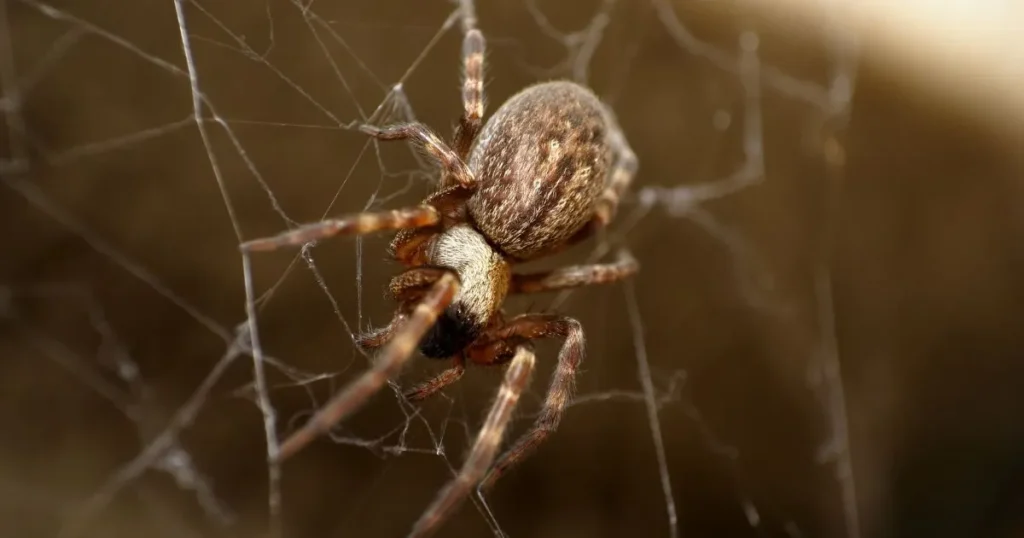
This section addresses common inquiries regarding methods to keep spiders away from homes and properties. Specific techniques and preventative measures will be outlined to help effectively manage spider presence.
Effective methods include keeping the home tidy, using natural deterrents like peppermint oil, and regular cleaning to remove webs and eggs.
Sealing cracks and gaps, installing screens on windows and doors, and maintaining low humidity are practical tips to deter spiders from entering.
Essential oils, such as eucalyptus and citrus, and regular cleaning can help manage spider populations without resorting to harsh chemicals.
Regular vacuuming, decluttering, and proper landscaping can create a less inviting environment for spiders.
Shedding light on the importance of outdoor lighting adjustments and minimizing mulch near the foundation will help keep spiders at bay.
Natural repellents like vinegar or citrus peels can be placed around entry points to deter spiders.
Frequent dusting and the use of spider traps in corners can significantly reduce spider activity.
Key practices to prevent brown recluse spiders are regular inspections of dark areas, sealing entry points, and removing clutter.
Maintaining a tidy yard, using natural barriers like diatomaceous earth, and controlling outdoor lighting can discourage spiders.
Creating a clean environment, using essential oils, and ensuring proper home maintenance contribute to spider prevention.
Using natural repellents and screening windows and doors can help keep spiders out while maintaining airflow.
Regularly checking for nests, keeping outdoor areas tidy, and using repellents near entry points will lower the risk of black widow spiders.
Encouraging natural predators, such as birds, and using plants like marigolds can naturally deter spiders in garden areas.
Regular cleaning and removing clutter from areas like basements, attics, and storage spaces help eliminate hiding spots.
Covering sandboxes when not in use and regularly checking for spiders can help keep these areas safe for children.
Consistent cleaning, natural repellents, and preventative sealing can lead to lasting spider control.
Sealing gaps, reducing clutter, and using space heaters can help discourage spiders from seeking warmth inside.
Maintaining cleanliness and instituting regular preventive measures can reduce spider encounters during peak seasons.
Regular cleaning and storage in a covered area can help prevent spiders from settling on boat surfaces.
Utilizing natural deterrents, sealing entry points, and maintaining cleanliness are effective alternatives to sprays.
Limiting available food sources, such as other insects, through cleanliness is vital in reducing spider populations.
Regular outdoor maintenance, removing clutter, and inspecting for webs can help keep black widow spiders from nesting.
Employing natural deterrents and ensuring no plants or debris are touching walls can deter spiders from these areas.
Essential oils like peppermint and eucalyptus can repel spiders and bugs when used in home sprays.
Adjusting the type of bulbs used and incorporating barriers can help reduce spider attraction to outdoor lighting.
A protective cover and regularly cleaning surfaces can prevent spiders from settling on pontoon boats.
Natural repellents and physical barriers, such as traps, are effective alternatives for spider control.
Regularly cleaning and using natural repellents can significantly minimize spider presence indoors.
Window screens and deploying natural repellents at entry points can help maintain ventilation.
Routine cleaning, proper sealing of potential entryways, and using essential oils are straightforward methods for long-term spider control.
Regular cleaning of windowsills and applying deterrent sprays can prevent spiders from approaching these areas.
Focus on reducing clutter, sealing cracks, and regularly checking for webs in hidden areas.
Covering seating when not in use and maintaining cleanliness in those areas can discourage spider habitation.
Regularly dusting and gentle natural solutions like vinegar can effectively remove webs without chemicals.
Utilizing a combination of cleanliness, natural repellent methods, and regular inspections helps maintain a bug-free environment.
Maintaining low clutter levels and using natural deterrents can create an uninviting atmosphere for apartment spiders.
Employing sealable containers and using natural repellents can reduce spider occurrences without constant oversight.
Positioning cameras away from potential spider habitats and using protective covers can prevent interference.
Regular maintenance and spider-repellent methods around security cameras can ensure clear and uninterrupted footage.
Utilizing screens and natural barriers while maintaining cleanliness can effectively discourage spider entry.
Consistent cleaning, employing natural repellents, and sealing entry points are all effective strategies for spider prevention.
Visit our Critter Library and learn more about our furry friends